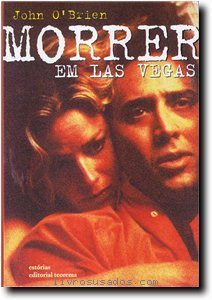What do you think?
Rate this book


210 pages, Paperback
First published January 1, 1990
"The name seraphim clearly indicates their ceaseless and eternal revolution about Divine Principles, their heat and keenness, the exuberance of their intense, perpetual, tireless activity, and their elevative and energetic assimilation of those below, kindling them and firing them to their own heat, and wholly purifying them by a burning and all-consuming flame; and by the unhidden, unquenchable, changeless, radiant and enlightening power, dispelling and destroying the shadows of darkness."

John O’Brien first novel is absolutely brutal. That’s my reaction to Leaving Las Vegas.
It’s a story about suicide. Slow, deliberate suicide. By alcohol.
It’s also a story about survival. Sera has survived for years as a streetwalking prostitute. Ben is a last-stage alcoholic who has either lost or consciously disposed of everything of value in his life. He has resolved to go to Las Vegas (where the bars never close) to drink himself to death, unknown and unencumbered by regret, relationships, possessions, or doubt.
It is also a gut-wrenching description of the danger of loving someone who believes him/herself unworthy of being loved. That’s enough tragedy for a whole big bunch of sad stories.
John O’Brien’s description of the results of long-term uncontrolled alcohol abuse is horrifying.
Brutality, suicide, doomed romance, and a terrifying addiction...what’s not to like about this story?
Author John O’Brien killed himself in 1995 at the age of thirty-three, two weeks after learning that his book Leaving Las Vegas was to be made into a movie.
My rating: 7.25/10, finished 12/5/21 (3593).